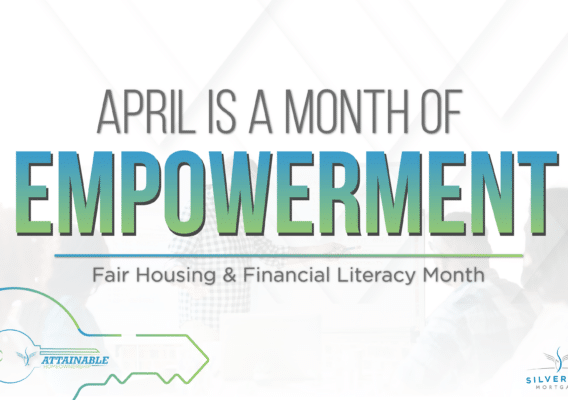As Tax Day approaches and we all start assessing our financials, it’s a good time to ponder what being a homeowner means for your bottom line. If you’re already a homeowner, the good news is there are tax benefits for buying, owning, remodeling, and selling your property. In this post, we’ll break down what those benefits are and how to ensure you’re taking advantage of them. If you’ve been considering buying a home of your own, perhaps this information will help you realize just how affordable homeownership can be.
Buying a home is an investment that has significant cost benefits, one of which is the savings seen in the tax deductions that you’re able to claim when you file your income tax. Tax deductions are items that reduce your taxable income. Every American is entitled to a standard deduction. However, you can claim itemizable deductions instead of the standard deduction when applicable. Doing this takes more time but can result in significant savings.
One of the many deductions that homeowners are eligible for is the mortgage interest deduction. This allows you to deduct the mortgage interest up to $750,000 that you’ve paid on a primary residence or second home if you purchased it after December 15, 2017. If you bought your home before December 15, 2017, then the amount that you can deduct rises to $1 million. Keep in mind that claiming a mortgage interest deduction requires itemizing your tax return. Typically, your lender will send you a Form 1098 in January or early February that specifies what you paid in mortgage interest during the tax year. A copy is also sent to the IRS, which should match what you report on your tax return.
Many view their property taxes as a necessary evil of owning a home. While this additional cost helps fund your community’s school district and other public services, it can take a chunk out of your budget. The good news is that you may able to deduct a portion of your property taxes. With federal tax returns, the law allows you to deduct up to $10,000, or $5,000 if married and filing separately, of your state and local taxes. While you will have to forego a standard deduction and itemize your taxes, the savings may be worth it.
Those who take measures to make their homes more energy-efficient may also see some tax benefits. By installing solar panels, geothermal heat systems, wind turbines, or energy-saving windows, heating and air-conditioning systems can receive a tax credit up to 30% of the cost. You can learn more about these incentives here. Note that a tax credit is different than a deduction. While a deduction reduces your taxable income based on your tax bracket, a credit is a dollar-for-dollar reduction in the taxes that you owe. Therefore, a credit means more savings.
Finally, if you’ve sold your home there is a chance that you don’t have to pay taxes on any profit. This depends on how long you owned and lived in the house before selling it as well as how much profit you made. For instance, if you lived in your home for two out of five years before the sale, up to $250,000 of profit is tax-free. If you’re married and file your taxes jointly, then the amount of tax-free profit goes up to $500,000. This exclusion of taxable income is applicable every time you sell a primary residence so long as you have lived in it without claiming the exclusion on another home in the past two years.
The other significant and immediate, cost-benefit to owning your home is imputed rent. This basically means that you’re avoiding paying for a service, in this case rent, by providing the service yourself. If you were a landlord, you’d have to pay taxes on the income that you receive from rent. As a homeowner, however, you are the landlord and renter which means that you don’t have to count the rental value of your home as taxable income. While a return on other investments such as stocks would be taxed, a return on your home investment isn’t. The Office of Management and Budget estimates that the exclusion of imputed rent reduced federal revenue by nearly $110 billion in the fiscal year 2017.
Buying a home is a huge investment that can certainly pay off each year when tax season rolls around. It may be beneficial to hire a tax professional who can help you navigate which tax deductions are available to you and how to take advantage of them. If you’re considering buying a home of your own, contact a Silverton Mortgage professional to discover which programs are available to you. We understand that one size does not fit all when it comes to home loans and make it a point to consider your specific circumstances when finding your perfect mortgage. Next tax season could be your best yet!
You Might Also Like

April: The Month of Empowerment

Navigating the Mortgage Maze: The Mortgage Process Simplified

